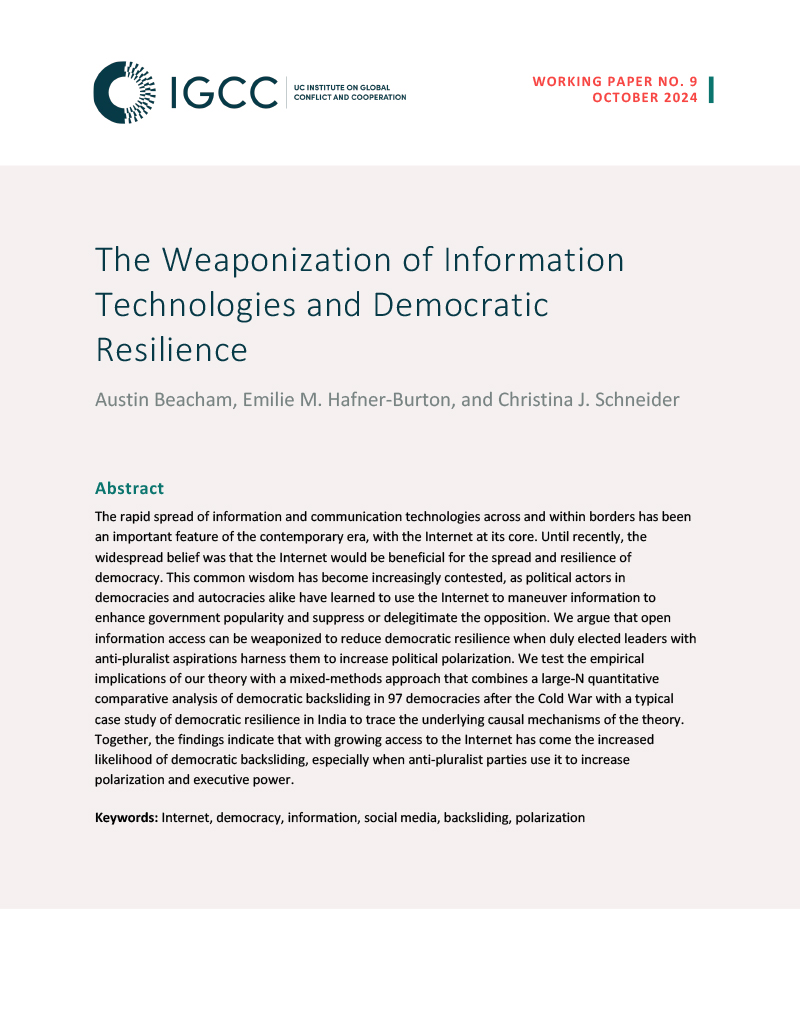The Weaponization of Information Technologies and Democratic Resilience

In this paper, co-authors Austin Beacham, Emilie Hafner-Burton, and Christina Schneider argue that open information access can be weaponized to reduce democratic resilience. Their findings indicate that with growing access to the Internet has come the increased likelihood of democratic backsliding, especially when anti-pluralist parties use it to increase polarization and executive power.
DownloadThe rapid spread of information and communication technologies across and within borders has been an important feature of the contemporary era, with the Internet at its core. Until recently, the widespread belief was that the Internet would be beneficial for the spread and resilience of democracy. This common wisdom has become increasingly contested, as political actors in democracies and autocracies alike have learned to use the Internet to maneuver information to enhance government popularity and suppress or delegitimate the opposition. In this paper, co-authors Austin Beacham, a postdoctoral fellow at the Georgia Institute of Technology, and Emilie Hafner-Burton & Christina Schneider, both professors at UC San Diego, argue that open information access can be weaponized to reduce democratic resilience when duly elected leaders with anti-pluralist aspirations harness them to increase political polarization. They test the empirical implications of their theory with a mixed-methods approach that combines a large-N quantitative comparative analysis of democratic backsliding in 97 democracies after the Cold War with a typical case study of democratic resilience in India to trace the underlying causal mechanisms of the theory. Together, the findings indicate that with growing access to the Internet has come the increased likelihood of democratic backsliding, especially when anti-pluralist parties use it to increase polarization and executive power.
Thumbnail credit: Antoni Shkraba (Pexels)